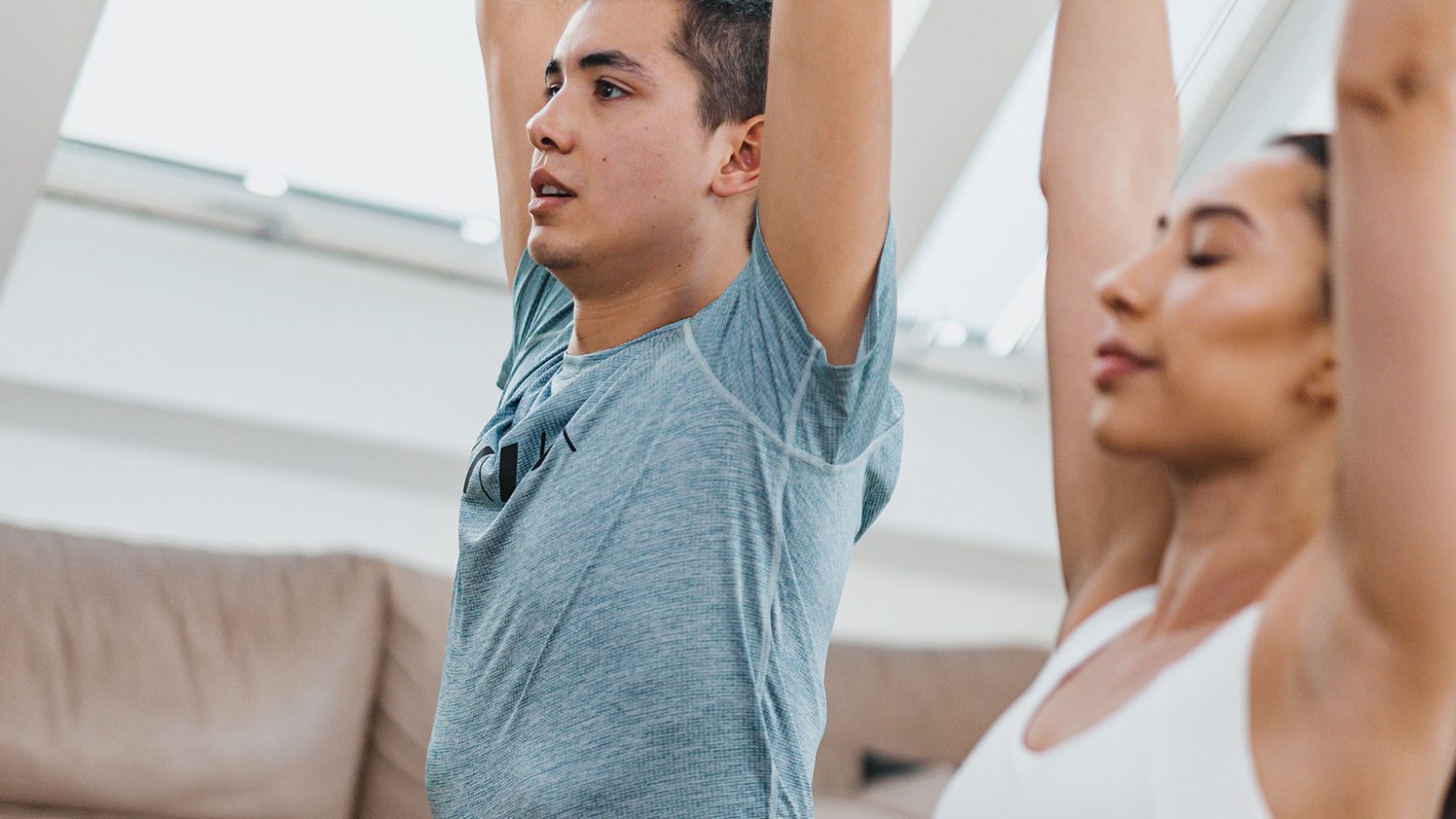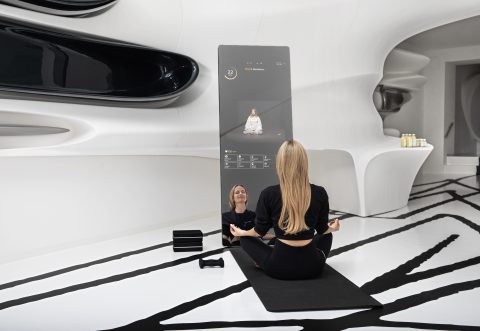1. Meditation helps us fight stress and inflammation
Constant stress is synonymous with the time in which we live and is the driving force behind many secondary diseases. The good news is that regular meditation can be an effective antidote. People who meditate not only feel less stressed but it has been observed that the level of the stress hormone cortisol in their bodies also decreases with meditation.
As for inflammation, a study at the University of Wisconsin-Madison was able to prove that meditation is a strong fighter against it. The researchers found that after a special ointment was used to induce an inflammatory reaction in the skin of two groups, the subjects who practised mindfulness meditation had far fewer inflammatory markers in their blood than the non-meditating control group. [1]
2. People who meditate don’t sick as often as the rest of us.
Another study by the University of Wisconsin-Madison showed that the participants who meditated regularly were more than 30% less likely to fall ill with the flu and common colds compared to the control group. Also, the duration and severity of illness were significantly lower in the meditators than in the non-meditators [2]. If this isn’t a perfect reason to start meditating (especially in winter), then what is?
3. Meditation helps us sleep better
Getting enough sleep is a cornerstone of our health, but many of us find it difficult to switch off at night or sleep peacefully and uninterrupted. Well, researchers at the University of California found that people who suffered from sleep disorders not only had significantly improved sleep quality after a 6-week meditation programme but were also less exhausted during the day [3].
4. Meditation reduces the risk of heart disease.
In addition to reducing stress, meditation can also lower high blood pressure, a leading cause of heart disease. This incredible benefit was shown by doctors from the University of Würzburg in a study in which they divided patients with high blood pressure into two groups: The first group meditated for 40 minutes a day for two months while the second group served as a control group. After the two months ended, the resting blood pressure of the meditating subjects had dropped by 12% on average, while the control group showed no changes [4].
5. Meditation relieves headaches and migraines.
Several studies have shown that mindfulness meditation can both relieve the pain of migraines and headaches and reduce the frequency of such occurrences [5]. Anyone who struggles with migraine attacks may benefit from regular meditation practice.
6. Meditation increases positive emotions and changes the brain.
Scientists at the University of California were able to show that long-time meditators have more grey matter in the region of the brain that regulates emotions. The scientists suspect that the larger volume of grey matter explains the special abilities of meditators to remain emotionally stable even in challenging situations, to cultivate positive emotions, and to show mindful behaviour in everyday life [6].
If you’re now ready to take up a meditation practice for yourself, we have some final tips for you. Many of us find it difficult to start meditating because the harder we try to concentrate on our breathing or a selected mantra, the louder the carousel of thoughts in our heads become.
As a beginner, we recommended that you start with short periods, roughly 2-5 minutes a day. It also helps to be guided by guided meditations. Many great programs are freely available on the internet – or try VAHA 30 days for free and experience our meditation sessions live & on-demand in the comfort of your home. Don’t be afraid to try a few practices out until you find the meditation program that works best for you.
Sources:
[1] Melissa Rosenkranz et al. : A comparison of mindfulness-based stress reduction and an active control in modulation of neurogenic inflammation. In: Brain, Behavior, and Immunity 27, Januar 2013, S. 174-184. https://www.sciencedirect.com/science/article/abs/pii/S0889159112004758?via%3Dihub
[2] Bruce Barrett et al.: Meditation or Exercise for Preventing Acute Respiratory Infection: A Randomized Controlled Trial. In: Ann Fam Med. 10(4), Juli 2012, S. 337–346.
https://www.ncbi.nlm.nih.gov/pmc/articles/PMC3392293/
[3] David s. Black et al.: Mindfulness Meditation and Improvement in Sleep Quality and Daytime Impairment Among Older Adults With Sleep Disturbances. In: JAMA Intern Med. 175(4), April 2015, S. 494–501. https://www.ncbi.nlm.nih.gov/pmc/articles/PMC4407465/
[4] J. P. Manikonda et al.: In: Journal of Human Hypertension 22(2), März 2008, S. 138-40. https://www.researchgate.net/publication/6016034_Contemplative_meditation_reduces_ambulatory_blood_pressure_and_stress-induced_hypertension_A_randomized_pilot_trial
[5] Qiang Gu et al.: Mindfulness Meditation for Primary Headache Pain: A Meta-Analysis. In: Chinese Medical Journal 131(7), April 2018, S. 829-838. https://www.ncbi.nlm.nih.gov/pmc/articles/PMC5887742/
[6] Eileen Luders et. al: The underlying anatomical correlates of long-term meditation: Larger hippocampal and frontal volumes of gray matter. In: Neuroimage 45(3), April 2009, S. 672–678. https://www.ncbi.nlm.nih.gov/pmc/articles/PMC3184843/





